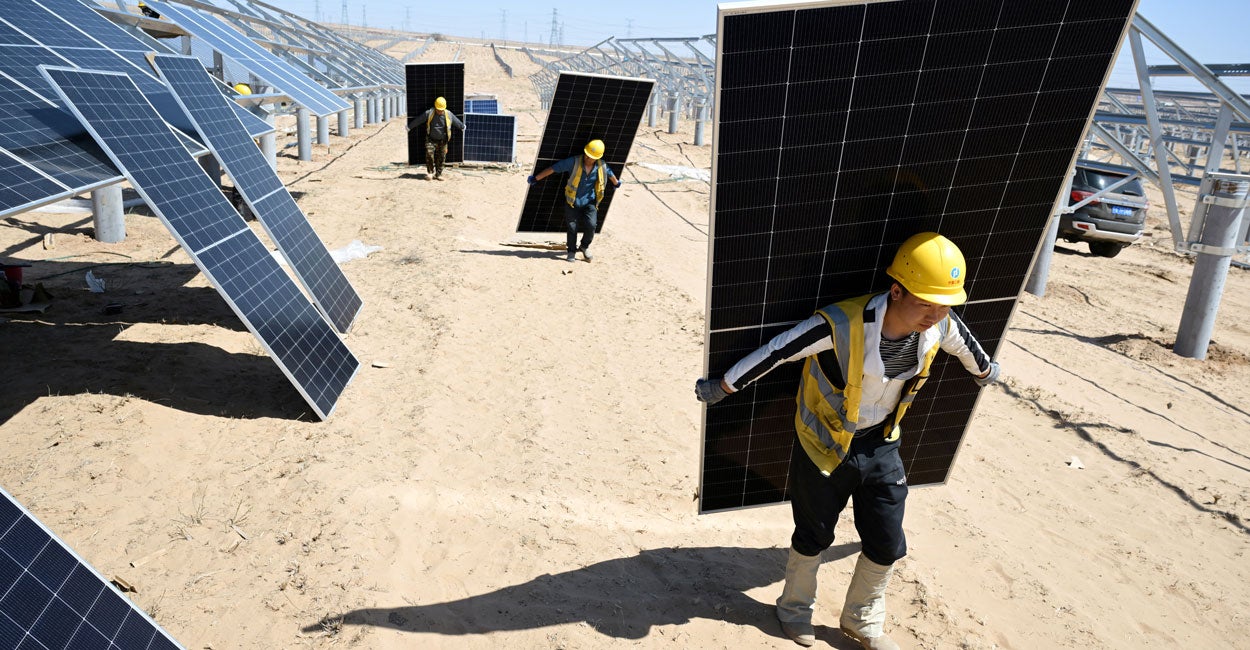Remembering the Korean War, 75 Years Later

75 years ago, on June 25, the Korean peninsula became the front line for a global battle: that of tyranny versus liberty and autocracy versus democracy.
From June 25, 1950, to July 27, 1953, the Korean War claimed the lives of millions of people, including those of 54,246 American soldiers. And while the war technically concluded with an agreement, the ideological divisions that sparked the war not only still exist but thrive today.
The roots of the original conflict trace back to Korean resistance movements and the geopolitical tension following Korea’s annexation by Japan in 1910.
After World War II, Korea was split in two, with the Soviet Union occupying the area above the 38th parallel while the U.S. occupied the area below it.
Despite this separation, there was public intention to reunite the nation, but the peninsula struggled to find unanimity on plans for a unified country. At the same time, many North Koreans fled south seeking refuge from Soviet-backed oppression.
The U.S. military maintained its presence in South Korea until 1948, even though President Truman had transferred responsibility of South Korea to the United Nations the year prior.
Anticipating an emerging conflict from the tense political landscape, the United States attempted to strengthen South Korean forces by providing weapons and supplies.
North Korea then invaded the South on June 25, 1950.
As the beacon of hope and freedom in the post-World War II era, the U.S., joined by the U.N., sent troops to defend the liberty of South Koreans.
The 8th Army were the predominant warfighters in Korea. In the first weeks of the conflict, they experienced multiple withdrawals. Then, they successfully set up a defensive perimeter, called the Pusan Perimeter, behind the Naktong River, enabling a successful U.N. offensive.
In September 1950, U.S. forces led a counteroffensive at Inchon Landing—one riddled with challenges from tidal variance to mines to abundant islands and shallows. Yet this operation proved successful, inflicting substantial damage on the North Korean People’s Army.
Eventually, the 8th Army captured Pyongyang on Oct. 19, 1950. Sensing victory ahead, the 8th Army planned its “end-of-the-war offensive” for November 24.
Such hopes for an end to the war soon vanished with the Chinese backing of the North. As U.N. forces neared the Chinese border in fall 1950, China sent troops into North Korea. By November, there were nearly 300,000 Chinese troops in the conflict.
The young People’s Republic of China was an unanticipated adversary—one the U.S. soon found itself not just fighting, but losing to. Over the next three years, little progress was made, and on July 27, 1953, North and South Korea signed an armistice agreement setting the border at the 38th parallel, or prewar lines.
Today, there remains a lasting and tragic division of the Korean Peninsula, one that reflects a broader division between autocracy and democracy.
The tension between communist and anticommunists, freedom and oppression, remains just as present today, with more than 1.5 billion people forced to live under communist governments (with most in China and North Korea).
Yet the U.S. and South Korea maintain a powerful alliance that still stands firmly in opposition to the cruelties of communism.
As the Korean Defense Veterans Association Reminds us:
The South Korea-U.S. Alliance, built upon the sacrifices of war and our veterans, has endured for over 70 years. During this time, approximately 3.3 million U.S. troops have served in Korea, helping to deter war and contributing to the nation’s economic development and democratic progress.
Even in times of peace, 103 lives have been lost due to North Korea’s continued acts of hostility. The United States and South Korea have also shed blood together in Vietnam, Afghanistan, and Iraq, standing side by side in defense of shared values.
Today, on this anniversary, it is important to reflect on the war, recognize the sacrifices made by tens of thousands of Americans and South Koreans, and remember the threat posed by communist regimes.
Though it’s not an easy fight, the shared values and history of the U.S. and South Korea will continue to defend against communism. As a nation, we must honor this mission and the lives lost to protect it.
The post Remembering the Korean War, 75 Years Later appeared first on The Daily Signal.
Originally Published at Daily Wire, Daily Signal, or The Blaze
What's Your Reaction?
 Like
0
Like
0
 Dislike
0
Dislike
0
 Love
0
Love
0
 Funny
0
Funny
0
 Angry
0
Angry
0
 Sad
0
Sad
0
 Wow
0
Wow
0










































































